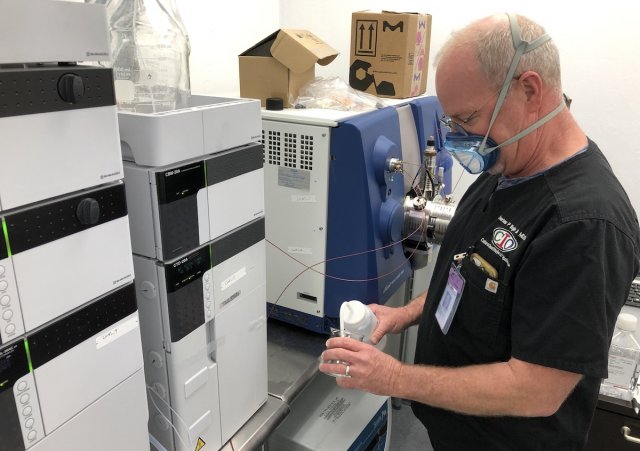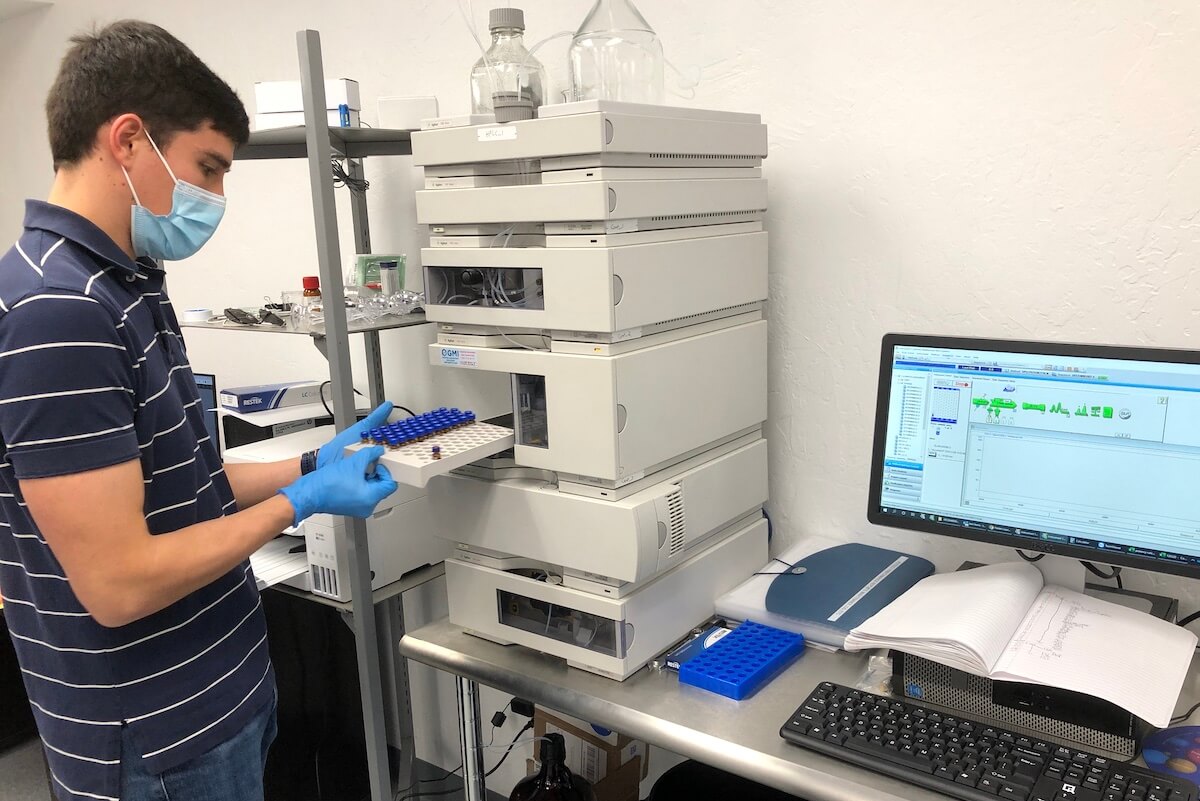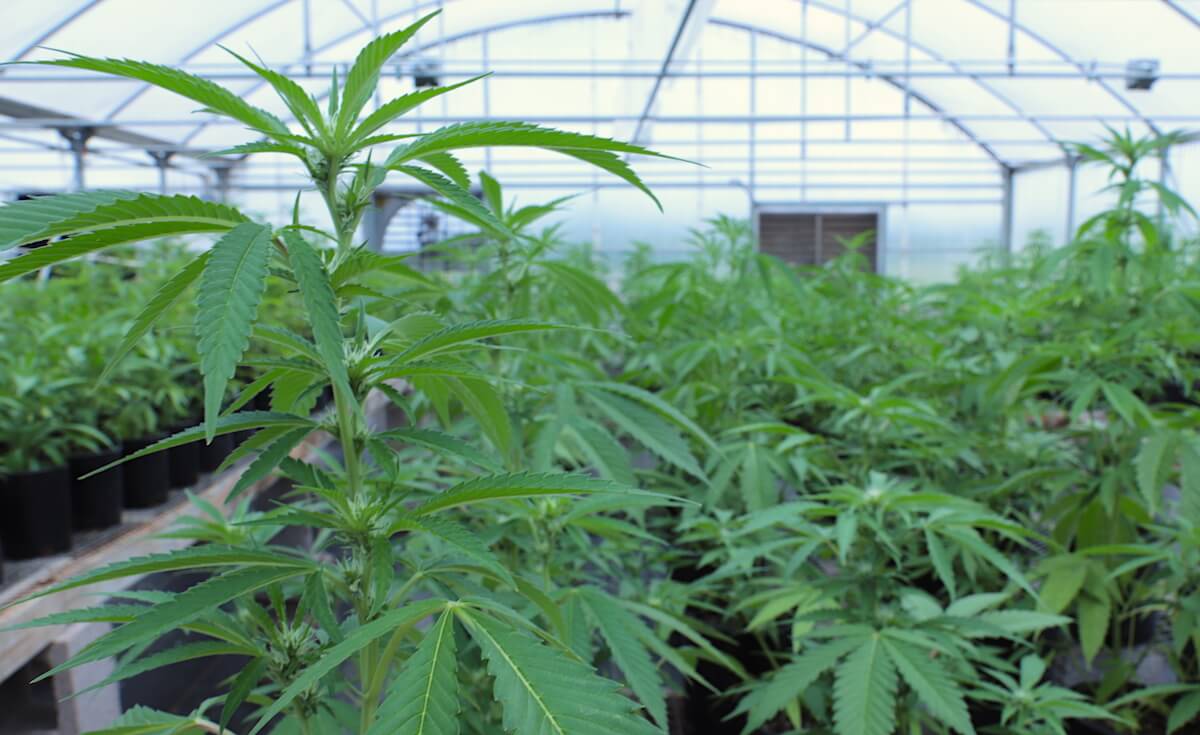
When State Question 788 passed in 2018 to legalize medical marijuana in Oklahoma, Dr. Charles Bogie was skeptical. He wondered who would take advantage of the program, how it would be implemented and what its impact would be.
That skepticism slowly turned into interest and research, and before long Bogie, who earned doctorates in microbiology and immunology from the University of Oklahoma and currently practices ophthalmology, became a believer.
“Personally, I had no experience with marijuana,” Bogie said. “I had a sheltered upbringing and didn’t use it. I didn’t have friends that I knew who used it, and I certainly didn’t want my boys involved.”
But Bogie took what he calls a leap of faith and decided to start authorizing marijuana prescriptions for his patients. Even then, he braced for disappointment.
“The first Saturday I ran a clinic, I told my wife it would be a disaster,” he said. “I was going to be inundated with 20-somethings that would say anything to get a card and stay legal. I have to say I haven’t been that wrong in a long time. It was one of the top clinical days of my career.”
Instead, Bogie encountered a man so stressed by caring for his ailing mother that his hair fell out and a combat veteran who sought medical marijuana to ease social anxiety.
“I saw people from all walks of life,” he said.
Today, Bogie is a co-founder of Integrity Labs in northwest Oklahoma City, an endeavor that represents his full embrace of the state’s medical marijuana industry. The lab conducts legally required testing of marijuana products for impurities such as heavy metals, pesticides and fungus.
Bogie was among a handful of industry participants who took part in a medical marijuana policy meeting led Monday by House Majority Floor Leader Jon Echols (R-OKC) and Rep. Scott Fetgatter (R-Okmulgee) at the State Capitol. The 2021 legislative session, which starts Feb. 1, is expected to produce some tweaks to the industry in the coming year.

The value of testing
Marijuana tested at Integrity and other labs can “fail” for a variety of reasons, but the two most common are concentration of heavy metals and pesticides. Integrity tests for four different kinds of heavy metal, including lead and mercury. It also tests for 13 types of commonly used pesticides.
“We test for four metals, and the most important thing to consider when discussing them is that they accumulate in human tissues and can eventually build up in toxic levels in patients that can cause irreversible health problems,” Bogie said.
Regarding pesticides, Bogie said growers often treat their crops with these chemicals in the beginning of the grow process with the idea that they will dissipate before harvest.
Currently, the flower of the marijuana plant, which Bogie said represents about 33 percent of actual plant structure, is the only raw product that state law requires to be tested. But, according to Bogie, stalks and stems can also be harvested for cannabinoids that find their way into other products. Those parts of the plant absorb high levels of potential contaminants in soil, including metals.
Bogie said he hopes the state will also consider changing its testing laws on what part of the plant is tested.
“Our testing laws aren’t comprehensive enough, and, while well intentioned, there are several loopholes that need to be addressed,” Bogie said.
State lab coming soon
Oklahoma Medical Marijuana Authority interim director Dr. Kelly Williams said the state is close to launching its own quality-assurance lab. The facility is expected to be fully operational by February, she said.
Williams said one objective of the quality-assurance lab is to better evaluate inconsistencies in results from labs around the state. For instance, labs might return different analyses of THC potency in a sample. The quality assurance lab will help standardize those results, Williams said.
“This is really critical, because every day our patients’ health is on the line when they use medical marijuana, just as it is when they use any other medication,” she said. “Specifically, some of our patient licensees have chronic conditions that make them high risk. Not only that, there are potential contaminants that can affect everyone. I believe the OMMA exists to protect patient safety. Quality laboratory testing is the cornerstone of that process.”
Seed-to-sale program addressed
Oklahoma will implement a seed-to sale process that will require every medical marijuana plant and wholesale package containing processed marijuana to include an RFID tracking tag.
The goal is to track the lifespan of a plant from the time it is planted until it reaches the hands of consumers. It also helps ensure dispensaries and processors are receiving the product they ordered. Williams said it will also make it easier for the OMMA to identify products when there is a recall. The state has had three product recalls in the past two years.
“There was concentrate sold that wasn’t tested properly before it was sold,” Williams said. “In another case, a processor purchased medical marijuana that did not specifically match the product that was given to them.”
The state will implement a software program created by Metrc, which is currently used by 15 states. Williams said the software allows regulators to track products in real time.
“We have the full lifespan of every plant and every product,” Williams said. “We know who grew it and who processed a batch on what date and into what product.”
RFID tag cost questioned

Under the state’s seed-to-sale program, growers and processors would be required to purchase RFID tags from Metrc. They cost between $0.25 and $0.45.
Rep. T.J. Marti (R-Broken Arrow) questioned whether the state is ceding too much control to one vendor. Marti, a pharmacist, is also concerned about the costs of operating his own business and is sensitive to the cost being passed on to producers. He said he’s seen the RFID tags for as low as $0.12 from other vendors.
“The more complex a business can make its business, the more it costs the public,” he said. “We go through this in my business of pharmacy. What I’m afraid of is the more integrated we are with the company, the less control we have.”
Fetgatter said the cost of the tags is high and adds to an already growing burden of fees business owners face in the medical marijuana industry.
“For the patients, it drives up cost,” Fetgatter said. “Currently, we have a very low barrier to entry as far as licensing. However, once you start adding the fees different municipalities and counties are adding on top, now we’ve added another $0.45 per plant. For patients, I see this as a loss. For businesses, you are now driving up their costs as well.”
Metrc use in other states questioned
Fetgatter said he has heard of complaints about Metrc’s tracking service.
“I receive phone calls every day of every week of every month about bad product coming in from California and Colorado, and both of those states use Metrc,” he said.
Joey Meibergen operates Primal Cannabis, which currently grows medical marijuana outdoors on 90 acres. He told lawmakers at Monday’s meeting that the tags will be a burden.
“I’m opposed,” he said. “I’d have to buy about 50,000 of them.”
Meibergen added there would still be loopholes for unscrupulous growers.
“If we have RFID tags, the cost is going to go up quickly and people can still cheat their yield,” he said.
Meibergen said control needs to remain with the OMMA as much as possible.
“The more autonomy and control we can give the OMMA to make their own destiny and work the industry, I think the better,” he said.
Legal weed vote could come out of session

Fetgatter said at the conclusion of the day-long session that he has refiled HB 3228. That bill, which cleaned up some residency issues for business owners and addressed things like whether dispensaries could manufacture their own pre-rolled joints is slated for consideration in the next session.
Gov. Kevin Stitt vetoed the bill earlier this year, citing concerns over a provision for marijuana deliveries as the primary reason. Fetgatter said that provision has been removed and will be considered on its own in a second bill.
Fetgatter said he will also propose legislation in the next session that would put a vote before the people on a legal marijuana program that would operate alongside the state’s medical program.





















